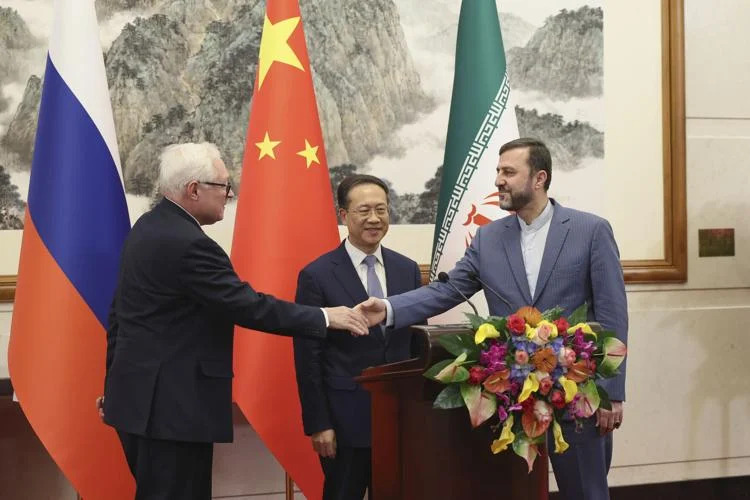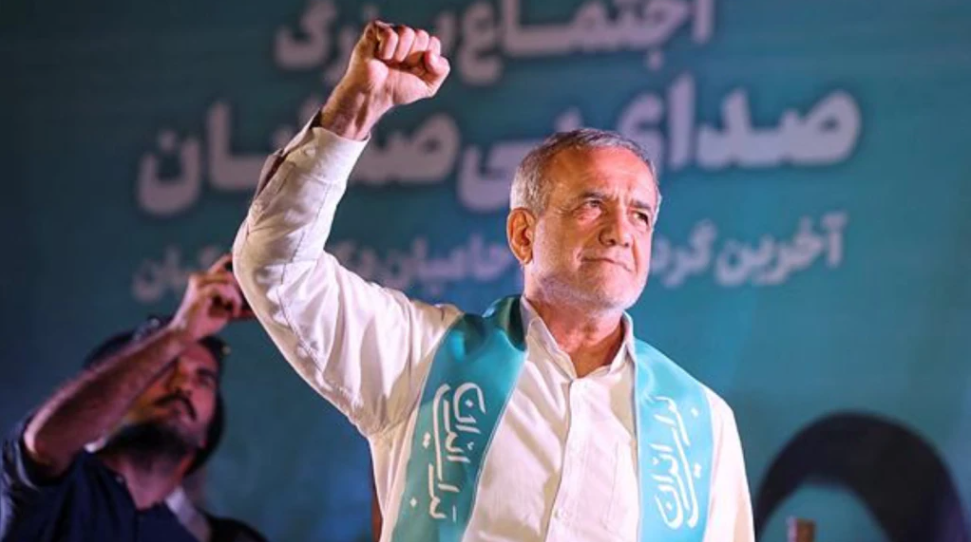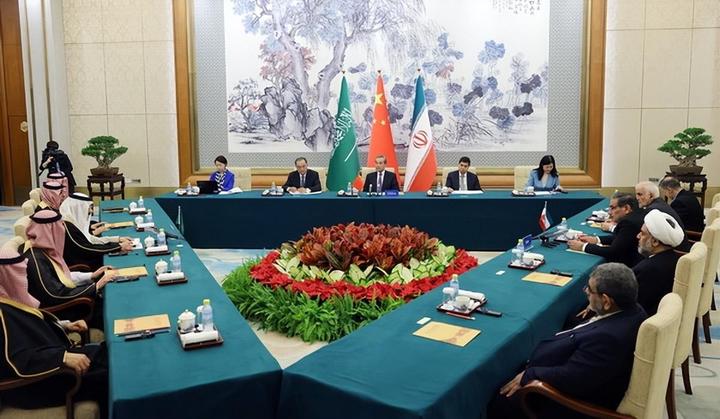
He Wenping, Senior Research Fellow, Charhar Institute and West Asia and Africa Studies Institute of the China Academy of Social Sciences
Mar 20, 2025
The three-way meeting in Beijing stood out for its effort to clarify the historical context of the Iranian nuclear issue and to present impartial, fair and equitable demands to all parties involved.

He Wenping, Senior Research Fellow, Charhar Institute and West Asia and Africa Studies Institute of the China Academy of Social Sciences
Jul 26, 2024
The new Iranian president, Masoud Pezeshkian, is a reformer who may represent a change in the country’s national mindset. But he will likely to continue to “look East” in the future, fostering closer economic and trade cooperation with China.
Ted Galen Carpenter, Senior Fellow, Randolph Bourne Institute
Jun 16, 2023
Several countries are making attempts to play the role of mediator to reduce dangerous tensions in various regions. The United States and its closest allies have greeted such efforts with undisguised or barely concealed hostility. Such an attitude not only is unhelpful and counterproductive, it will further isolate the West in the international community.

Lucio Blanco Pitlo III, President of Philippine Association for Chinese Studies, and Research Fellow at Asia-Pacific Pathways to Progress Foundation
Apr 26, 2023
China has upped its international statesmanship, making waves by playing the middleman to a historic Iran-Saudi Arabia agreement. Working with other countries like India and Turkey, Beijing’s economic and diplomatic leverage can be a factor in bringing Russia and Ukraine to the negotiating table.

Sebastian Contin Trillo-Figueroa, Geopolitics Analyst in EU-Asia Relations and AsiaGlobal Fellow, The University of Hong Kong
Apr 18, 2023
The Butterfly Effect has taken flight. China’s diplomatic accomplishment in reconciling Saudi Arabia and Iran could have far-reaching consequences, with Ukraine’s future caught in its wake. The unexpected nature of this historic move means that its ramifications are rapidly gaining momentum and could unleash a tidal wave of global proportions, particularly in Europe.
He Wenping, Senior Research Fellow, Charhar Institute and West Asia and Africa Studies Institute of the China Academy of Social Sciences
Feb 27, 2023
Looking eastward does not mean that China and Iran intend to join forces against the United States. While they do share opposition to hegemony and abuse of power, they are currently more focused on tapping and enhancing economic cooperation.
He Wenping, Senior Research Fellow, Charhar Institute and West Asia and Africa Studies Institute of the China Academy of Social Sciences
Apr 17, 2021
China has its own reasons for strategic cooperation with Iran, and undermining the United States is not one of them. It is true, however, that Iran wants the U.S. to lift all sanctions, and the U.S. has signaled that it may be ready to concede.
Ben Reynolds, Writer and Foreign Policy Analyst in New York
Apr 17, 2021
The news of an agreement struck between two of America’s adversaries made waves and raised the alarm for a potential showdown, but the potential for military coordination isn’t the main focus of the agreement.
Jin Liangxiang, Senior Research Fellow, Shanghai Institute of Int'l Studies
Dec 04, 2020
U.S. return to the Iran nuclear deal could be difficult. Much has changed in the world in the past four years, including the recent assassination of Iran’s top nuclear scientist. China’s help may be needed more than ever.

Patrick Mendis, Visiting Professor of Global Affairs, National Chengchi University
Feb 02, 2020
President Donald Trump’s authorization of a drone strike that assassinated Iranian General Qassem Suleimani is the icing on the cake for his record of erratic and unpredictable foreign policy. More importantly, it has opened the door for China and Russia to gain military, economic, and diplomatic influence in the Middle East.